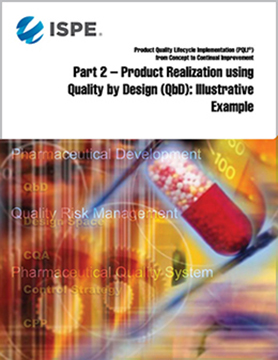Practical Implementation of Process Validation Lifecycle Approach (T46) - Updated!
Overview
Lifecycle Process Validation (PV) remains one of the most important and commonly misunderstood topics in the pharmaceutical industry. How many lots should I make? Are we taking enough samples? Do we need to use statistics in our protocols? The real question may be: am I even focusing on the right questions?
Course participants will focus on the practical application of the lifecycle approach to all stages of PV to gain valuable knowledge and insight on the regulations, guidance, and best practices currently utilized across the industry.
What You Will Learn
- Course participants will focus on the practical application of the lifecycle approach to all stages of PV to:
- Understand the importance of product and process understanding and patient requirements.
- Know how to apply QRM tools for PV.
- Recognize opportunities to leverage process design information to establish a process validation strategy and a process performance and product quality monitoring program.
- Understand the challenges to the application of an entirely science- and risk-based approach.
- Understand a variety of approaches to applying specific expectations of the lifecycle approach to PV including number of sampling, acceptance criteria and determining the number of batches for PPQ/PV.
- Understand the differences in expectations among various major world markets.
- Learn various approaches for deciding which attributes and parameters should be evaluated at a heightened level during PV stage 3.
- Understand new expectations for routine process monitoring.
- Understand the process validation lifecycle and the importance of maintaining an effective pharmaceutical quality system.
- Apply process performance and product quality monitoring system elements to identify opportunities for continual improvement.
- Minimize chance of validation failures by learning about adequate preparation in process understanding and ancillary systems.
- Acquire tools to prepare for a smooth validation execution.
- Understand implications of validation deviations.
- Maximize and be able to apply your understanding of ICH terminology including the principles of a science- and risk-based approach to the process validation lifecycle.
- Recognize the value of the requirements of management’s responsibilities within the PQS.
Resources and Activities
- Pre-Course Work Materials
- Interactive Exercises
- Learning Assessments
- ISPE PQLI Guide: Part 2 - Product Realization using QbD: Illustrative Example
Online Live Course Modules
Overview of Stage 1: Process Development
- Regulatory Climate and Surrounding Changes in Process Validation
- Breakout Scenario - Review of Warning Letters
- Process Validation Basics US and EU
- Breakout Scenario - Similarities and differences between US and EU
- QRM Applied to PV
- Breakout Scenario - FMEA
- Developing Understanding of QbD to Develop Robust Control Strategies (PV Stage 1)
- Breakout Scenario - Case Study
- Wrap-up
Stage 2: Performance Qualification / Process Validation
- Equipment and Qualification
- Breakout Scenario - Critical Aspects/ Large Molecule
- Statistics for PV
- Breakout Scenario - Control Charting Basics
- Readiness for Process Performance Qualification (PPQ) / PV
- Breakout Scenario - Design of PPQ PV Study Protocol
- Acceptance Criteria, Number of Batches, Sampling Plan
- Acceptance Criteria and Sampling Plans for PPQ
- Breakout Scenario - Acceptance Criteria Sampling Plan
- Wrap-up
Stage 3: Continued Process Verification / Ongoing Process Verification
- Process Validation / PPQ Execution
- Breakout Scenario - Analyzing Data
- Continued Process Verification (CPV) / Ongoing Process Verification (OPV)
- Breakout Scenario - CPV and OPV Planning
- CPV / OPV for Existing Products
- Breakout Scenario - Comprehensive Case Study
- Wrap-up / Review / Quiz Show
Who Should Attend
- This course is relevant to individuals involved in process validation of products and processes in all sectors of the pharmaceutical industry – small and large molecules, innovators, generics, and lifecycle management.
- Specific job functions including:
- Development, manufacturing, engineering, quality, validation compliance, and scientific professionals with intermediate level experience in development, manufacturing, engineering, validation, quality, technology transfer and those wishing to understand the concept of process validation as a lifecycle.
Additional Course Details
This virtual course is relevant to individuals working throughout the pharmaceutical product lifecycle in development, manufacturing, quality, and many other roles involved in validation of products and processes. It will help you integrate and link the science and risk-based lifecycle approach for Process Validation to your overall Pharmaceutical Quality System. It will provide you with practical application of quality risk management tools in preparation and planning for validation of your manufacturing control strategy. It will deliver statistical approaches and tools which can be used to strengthen and justify your decision-making rationale for defendable process design and process performance.
This course will trace the evolution of Process Validation from it’s infancy in the 1980’s to its current state of maturity. The level of evolution is evidenced with so many relevant guidance documents: ICH Q8, Q9, Q10 and Q11, the upcoming Q12, the 2011 US FDA guideline on Process Validation, EMA’s Process Validation documentation (general PV guideline, Annex 15, and biotech products). Now more than ever, there is a need to understand that process validation should be considered a science- and risk-based, life cycle activity rather than a one-time event of manufacture of three commercial scale batches. Companies should demonstrate that processes in the commercial phase of the lifecycle are maintained in a state of control using these techniques.
This course will not cover formulation development, the regulatory submission processes or detailed engineering designs and associated qualification.
Communities of Practice
This training course is of particular interest to existing and future members of the ISPE Active Pharmaceutical Ingredients, Commissioning and Qualification, Critical Utilities, Oral Solid Dosage, Process Analytical Technology, Product and Process Development, Sterile Communities of Practice (COPs).

